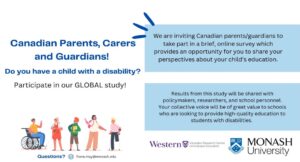Eric Goll, who I look to for mentoring on how to help my adult son build an “awesome, ordinary life”, put out a helpful video that is specifically about the R-word and his thoughts about dealing more broadly with people we haven’t been in contact with over a few years due to the pandemic. But it applies to ableist language in general.
Most of the time, I’m patient and informative when discussing disability with people who have less life experience (or with those who just have different experience). Until I’m not … – and on those days I’m at risk of appearing in someone’s video clip as a woman who has completely lost it. Some days the distance between those two reactions is pretty short. So I found Eric’s discussion of a 4 word short response to hurtful language to be a really helpful tool to add to my kit. And one that is more likely to lead to the result I wanted.
It’s also true that there is a lot of language that you or I have grown up with, or hear regularly, or may even use ourselves that is ableist in ways we don’t think about because it doesn’t match our life experience. Or didn’t match our life experience …. yet.
Lʏᴅɪᴀ X. Z. Bʀᴏᴡɴ wrote an interesting essay about Linguistic Ableism Violence in Language: Circling Back to Linguistic Ableism which includes a glossary of ableist phrases. These articles are worth a careful read – not because you are going to agree with all of it, but because of the comprehensiveness of viewpoints will help you refine your own ideas, and perhaps give you some better ideas on what to substitute and how to talk to others.

